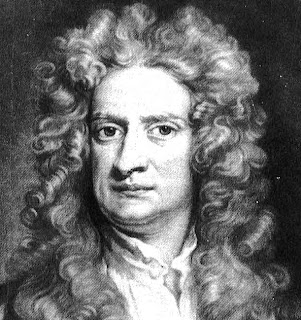lunes, 25 de octubre de 2010
Biografia de Isaac Newton.
Sir Isaac Newton (January 4, 1643 GR - March 31, 1727 GR) was a physicist, philosopher, theologian, inventor, English alchemist and mathematician, author of Philosophiae Naturalis Principia Mathematica, known as the Principia, which described the law of universal gravitation and laid the foundations of classical mechanics with the laws that bear his name. His other works include scientific discoveries about the nature of light and optics (which occur mainly in his Opticks) and the development of mathematical calculation.
Leibniz Newton shares the credit for the development of differential and integral calculus, which used to formulate laws of physics. Also contributed in other areas of mathematics, developed the binomial theorem and the Newton-Cotes formulas.
Between their scientific findings are the discovery of the color spectrum that is observed when white light passes through a prism is inherent in that light, rather than from the prism (as had been proposed by Roger Bacon in the thirteenth century) , his argument about the possibility that light was composed of particles, the development of a law of thermal convection, which describes the cooling rate of the objects exposed to air, their studies on the speed of sound in air and proposed a theory about the origin of stars. It was also a pioneer of fluid mechanics, establishing a law on the viscosity.
Newton was the first to demonstrate that the natural laws that govern the motion on Earth and those governing the movement of celestial bodies are the same. It is often described as the greatest scientist of all time, and his work as the culmination of the scientific revolution. The mathematician and mathematical physicist Joseph Louis Lagrange (1736-1813), said that "Newton was the greatest genius that has existed and the most fortunate that can only be found once a system governing the world."
Suscribirse a:
Comentarios (Atom)
